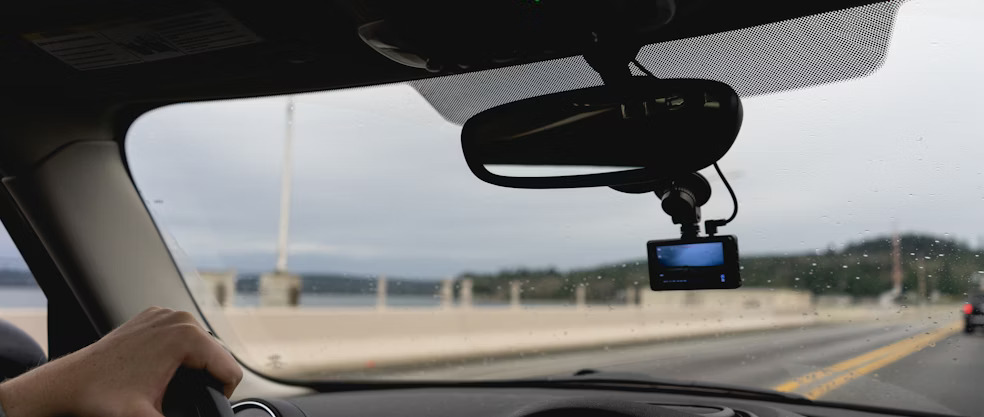Discover how dash cams enhance road safety, why you need one, the best types to consider, and what to do if you lack footage after an accident.
In today’s world, road safety is paramount, and having a reliable dash cam can be a game-changer. Dash cams provide invaluable evidence during accidents, help with insurance claims, and enhance overall driving accountability. This article will delve into the significance of dash cams, explore the different types available, explain why front and rear cameras are essential, guide you on saving footage during accidents, and offer tips on what to do when you don’t have dash cam footage.
The Importance of Dash Cams in Road Safety
Dash cams have become a crucial tool for drivers worldwide. These small, easily mountable cameras record everything that happens on the road, offering a firsthand account of events leading up to and during accidents. This footage can be pivotal in resolving disputes, protecting against insurance fraud, and even promoting safer driving habits.
Why You Should Get a Dash Cam
There are several compelling reasons to invest in a dash cam:
- Accurate Accident Reporting: Dash cam footage provides an unbiased account of events, helping to resolve disputes and determine fault accurately.
- Insurance Claims: Insurers often prefer claims supported by video evidence, which can speed up the claims process and prevent fraudulent claims.
- Deterrence of Fraud: The presence of a dash cam can deter individuals from attempting ‘crash for cash’ scams.
- Enhanced Driving Awareness: Knowing that your driving is being recorded can encourage more responsible behavior behind the wheel.
- Peace of Mind: A dash cam provides reassurance that you have evidence in the event of an accident.
Types of Dash Cams Recommended
Choosing the right dash cam depends on your needs and budget. Here are the main types to consider:
- Single-Lens Dash Cams: These only record the front view and are suitable for basic coverage of road incidents.
- Dual-Lens Dash Cams: These record both the front and rear views, providing comprehensive coverage of your vehicle.
- Triple-Lens Dash Cams: In addition to front and rear views, these also record the cabin, ideal for ride-share drivers and ensuring passenger safety.
- Advanced Dash Cams: Equipped with features like GPS, night vision, and parking mode, these provide superior recording quality and additional safety features.
Why You Should Get a Front and Rear Dash Cam
A front and rear dash cam setup is highly recommended for the following reasons:
- Complete Coverage: Captures incidents from all angles, ensuring no detail is missed.
- Rear-End Collisions: Provides evidence in the event of a rear-end collision, which is one of the most common types of accidents.
- Enhanced Security: Protects your vehicle from vandalism and theft attempts from both the front and rear.
Saving Footage When an Accident Occurs
In the unfortunate event of an accident, preserving the footage is crucial. Here’s how to ensure it’s saved properly:
- Automatic Recording: Most dash cams automatically save footage when they detect a collision through their G-sensor.
- Manual Saving: If your dash cam has a manual save button, press it immediately after the accident to ensure the footage is locked and not overwritten.
- Backup to Cloud: Some advanced dash cams offer cloud storage options. Make sure your device is set to upload videos to the cloud automatically.
What to Do When You Don’t Have Dash Cam Footage
If you don’t have dash cam footage, there are still steps you can take to gather evidence:
- Look for Witnesses: Immediately check for any bystanders who might have witnessed the accident. Collect their contact information and ask if they are willing to provide a statement.
- Check Nearby Businesses: Nearby businesses may have surveillance cameras that captured the accident. Request to review their footage.
- Photograph the Scene: Take detailed photos of the accident scene, including vehicle positions, damages, and any relevant road signs or signals.
- File a Police Report: Always report the accident to the police, and ensure all details are accurately recorded.
External Resources for Road Safety
For more information on road safety and related resources, you can visit the following government websites:
- National Highway Traffic Safety Administration (NHTSA)
- Federal Motor Carrier Safety Administration (FMCSA)
- Road Safety Information from the Department of Transportation (DOT)
Conclusion
Dash cams are invaluable tools that enhance road safety, provide crucial evidence during accidents, and offer peace of mind to drivers. By investing in a front and rear dash cam, you ensure comprehensive coverage and protection. Even without dash cam footage, you can still gather essential evidence by being proactive and resourceful. Prioritize your safety and the safety of others on the road by considering a dash cam today.




